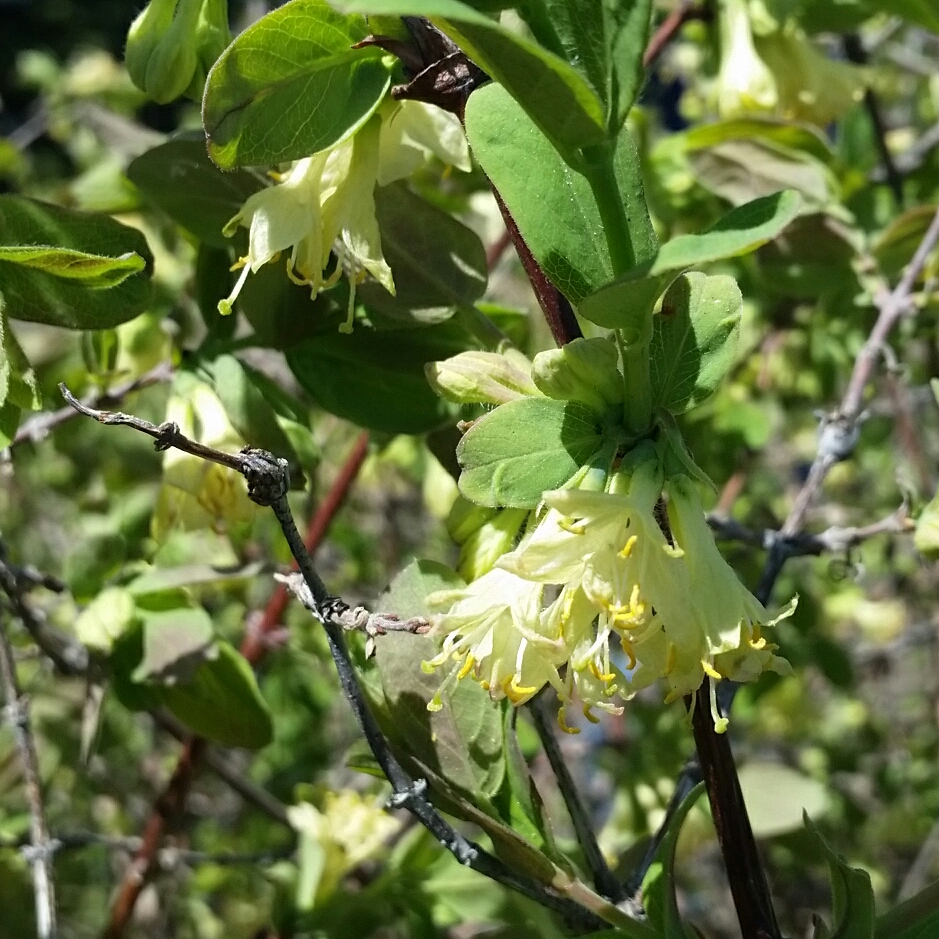
Lonicera caerulea var. kamtschatica 'Berry Blue' syn. Lonicera caerulea var. kamtschatica 'Berry Smart Blue'
Honeyberry 'Berry Blue'
Honeysuckles (Lonicera) are mostly hardy twining climbers, often grown for their fragrant display of summer flowers. Most are deciduous but some are evergreen. They are frequently grown for their ability to cover unsightly walls and outbuildings. The hardy climbing types need their roots in shade, and their flowering tops in sunlight or very light shade. The honeyberry is an edible form of honeysuckle, also known as 'blue honeysuckle'. The fruit has very high levels of vitamin C and antioxidants, delicious eaten fresh, and also used in jams and jellies. Honeyberry 'Berry Smart™ Blue' bears large, dark blue-black berries ripening in early Summer. It is hardy, and has no pest or disease problems. More than one variety is a require for cross-pollination.
-
Full sun to partial shade
-
Occasional watering
-
Full Frost Hardy: 5F (-15°C)
-
Free draining and fertile
Common name
Honeyberry 'Berry Blue'
Latin name
Lonicera caerulea var. kamtschatica 'Berry Blue' syn. Lonicera caerulea var. kamtschatica 'Berry Smart Blue'
type
Climber
family
Caprifoliaceae
ph
5.0 - 7.5 Acid - Neutral
Plant & bloom calendar
-
Best time to plant
-
When the plant will bloom
full grown dimensions
 1.00 M
1.50 M
1.00 M
1.50 M
Lonicera caerulea var. kamtschatica 'Berry Blue' syn. Lonicera caerulea var. kamtschatica 'Berry Smart Blue'
Honeysuckles (Lonicera) are mostly hardy twining climbers, often grown for their fragrant display of summer flowers. Most are deciduous but some are evergreen. They are frequently grown for their ability to cover unsightly walls and outbuildings. The hardy climbing types need their roots in shade, and their flowering tops in sunlight or very light shade. The honeyberry is an edible form of honeysuckle, also known as 'blue honeysuckle'. The fruit has very high levels of vitamin C and antioxidants, delicious eaten fresh, and also used in jams and jellies. Honeyberry 'Berry Smart™ Blue' bears large, dark blue-black berries ripening in early Summer. It is hardy, and has no pest or disease problems. More than one variety is a require for cross-pollination.
Propagation by cuttings
From Mid Autumn TO Mid Winter
Take hardwood cuttings of up to .3m from this years growth, making a clean from above a shoot and remove any soft growth. Nearly fill a container with fine grit at the bottom, to enable free draining, and a suitable compost. Place the cutting, having dipped he end in a rooting compound first, with a third of the cutting showing.
Propagation by cuttings
From Early Summer TO Mid Autumn
Semi hard wood cuttings are taken from the current years growth from late summer to mid autumn the bottom of the cuttings is hard and soft on the top. With a sharp knife take a cutting of about 14cms, remove lowest leaves, dip end into rooting hormone, and place round the edge of a pot filled with a suitable compost, water well, they must remain moist till rooted, place under glass but in semi shade.
Planting outdoors
From Mid Spring TO Late Autumn
Plant out cuttings taken last year once risk of frost has passed
Flowering season
From Late Winter TO Late Autumn
Honeysuckle typically flowers freely throughout the summer, some varieties coming into bloom in late winter.









